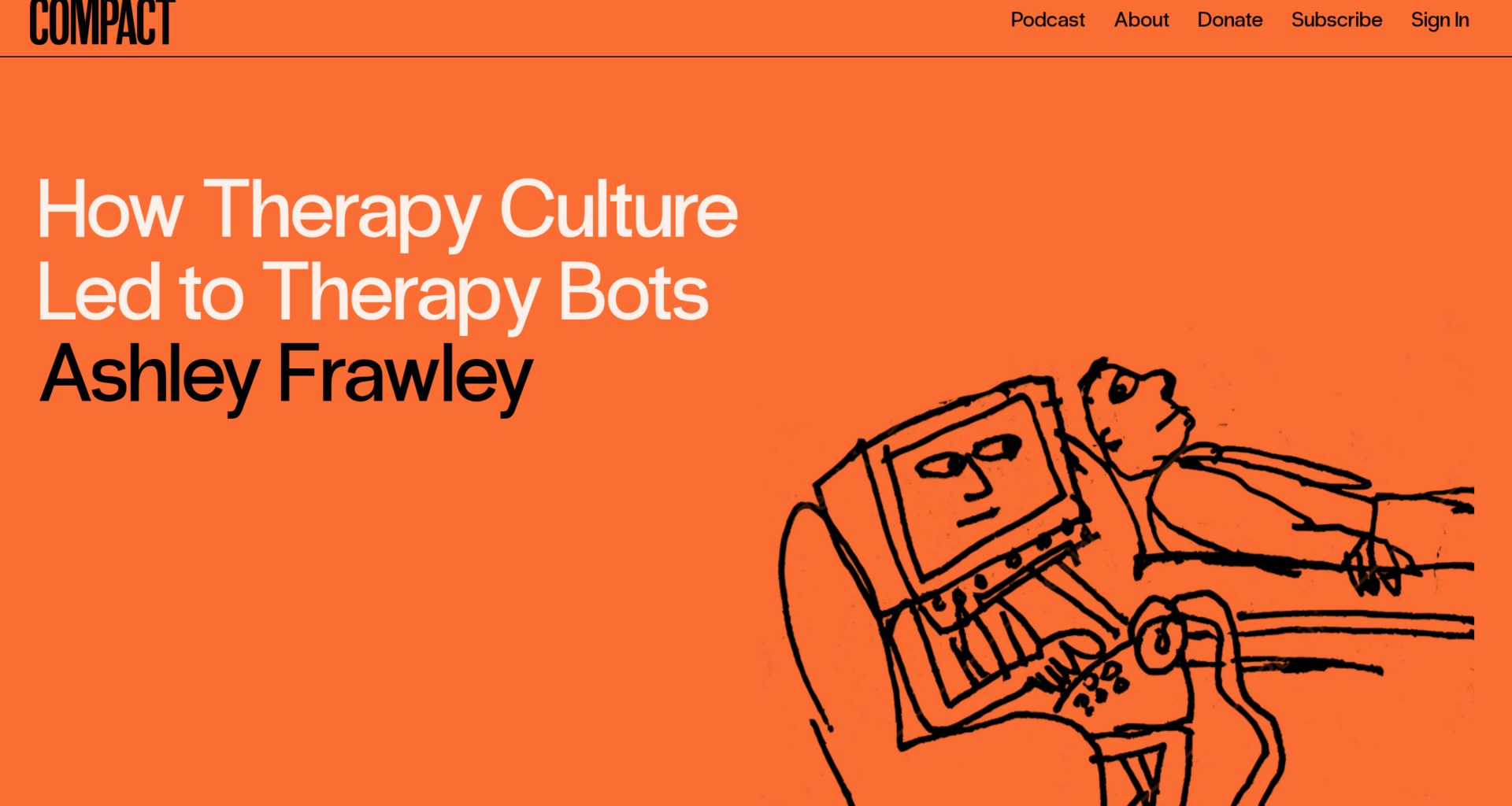Millions of people worldwide are turning to LLMs (large language models) like ChatGPT for mental health support. In response, a recent flurry of warnings has emerged about the risks of opting to do so. Going to ChatGPT with your problems can “unintentionally reinforce unhelpful behaviors, especially for people with anxiety, OCD, or trauma-related issues,” warns one psychologist in The Guardian. LLMs can show bias, stigma, and reinforce harmful stereotypes, alleges another report in Fortune. Others raise a more resounding alarm. “ChatGPT is pushing people towards mania, psychosis and death,” declared a recent headline in The Independent.
According to The Times, by March of this year there were nearly 16.7 million posts on TikTok about using ChatGPT as a therapist. Members of the therapeutic professions are not wrong to worry about the rise of LLMs as therapists. But what’s missing from this handwringing is the complicity of these same therapeutic professionals in creating this situation. They’ve made the therapy couch we all now have to lie on.
Become a member to continue reading this article.
Unlimited access to all articles for
$9 per month
or $90 per year
Get the best of Compact right in your inbox.
Sign up for our free newsletter today.
Sign up
Great! Check your inbox and click the link.
Sorry, something went wrong. Please try again.
Related Articles

